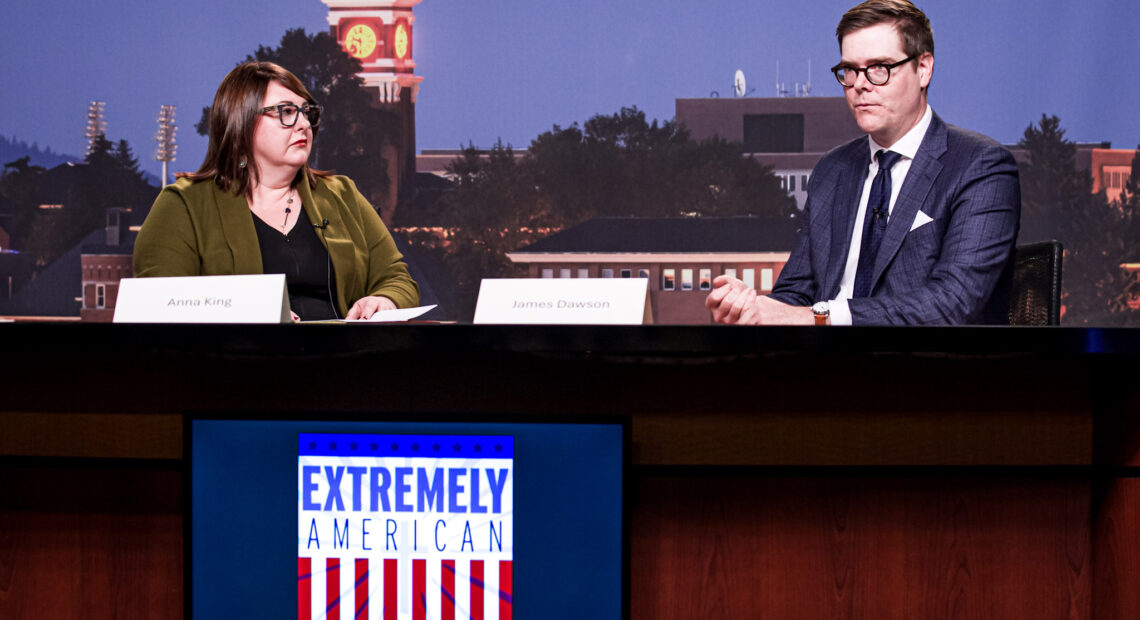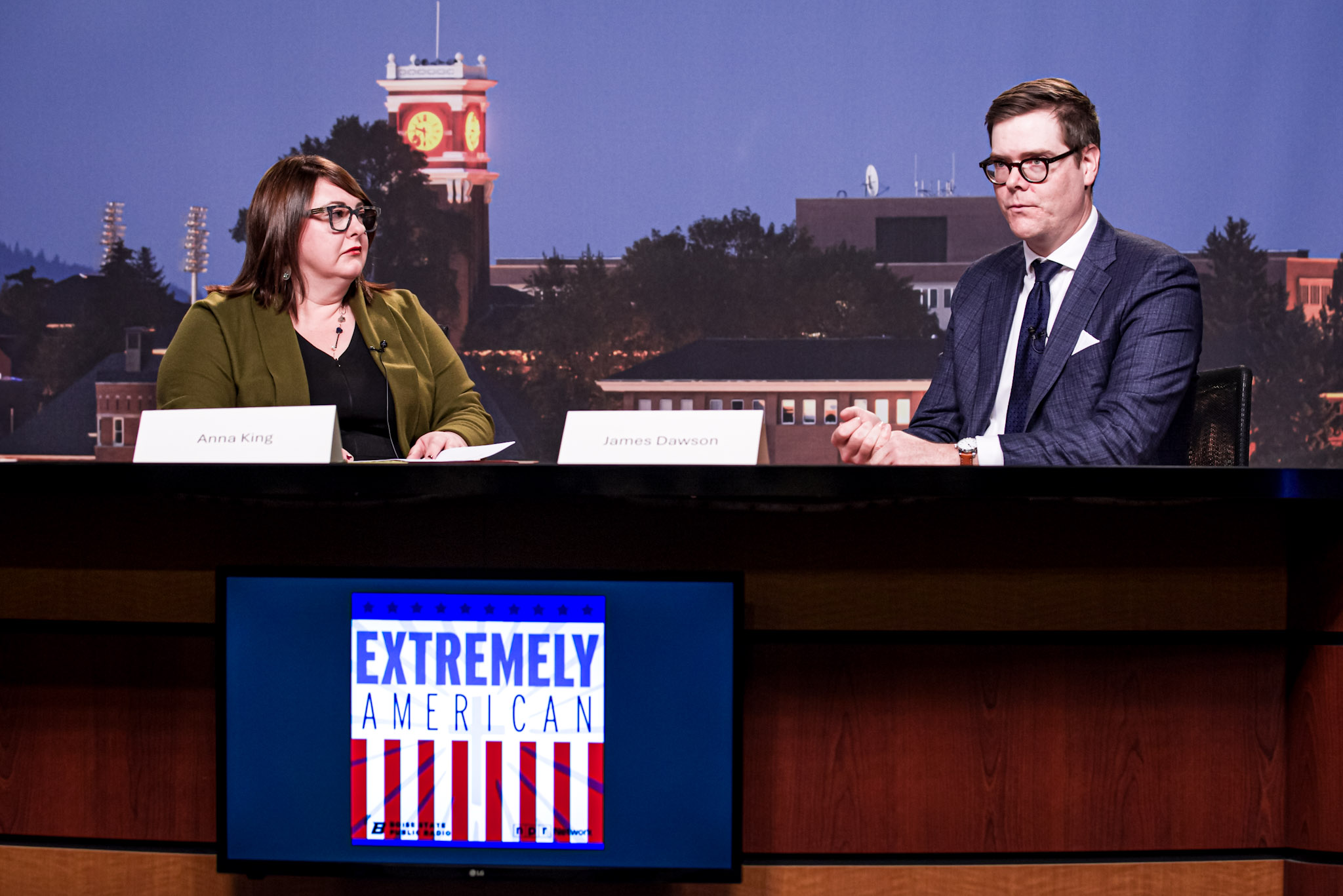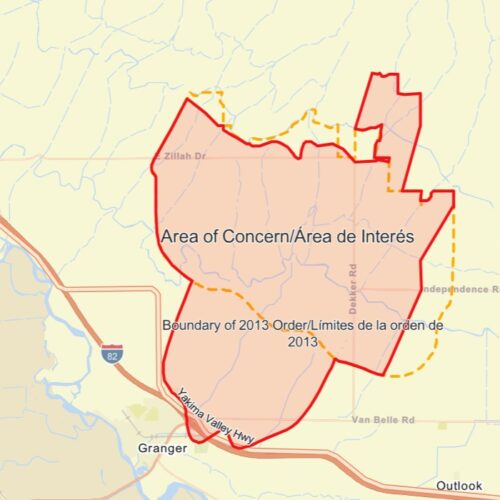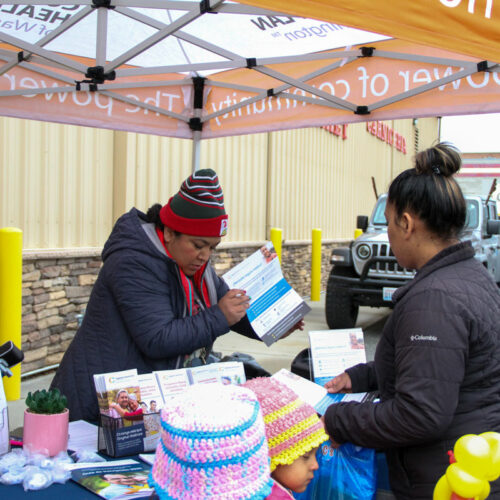
Moscow takes center stage in podcast focused on Christian Nationalism
Listen
(Runtime 7:52)
Read
Anna King: Why should we listen to your podcast and why should people care right now?
James Dawson: Yeah, I think it’s because while Christian nationalism, if we want to define it, is a movement that wants a very small and generally conservative subset of Christianity, very fundamentalist, to essentially control the levers of power within the United States.
So that means that they hold elected office. They’re running the top businesses in the country. They’re running the Amazons, the Microsofts, the Googlea, the Apples. They are basically in control of everything and filtering society through that lens, meaning that certainly gay marriage wouldn’t exist. Homosexuality is a sin. A lot of them want to repeal the 19th Amendment, which is the amendment that gives women the right to vote and no fault divorce. Make sure that people who aren’t within that particular fundamentalist demographic that they have could not vote or hold positions of power, things like that.
Again, this is a very small subset of the country, but it’s growing. With the recent results of the 2024 election, there have been people within the Christian nationalist sphere who previously held Deputy Secretary positions within the first Trump administration, and are almost certainly going to be holding positions as the transition happens in January. And so they potentially could have the president’s ear to influence policy that way. That is something that is a very realistic thing that could happen over the next four years.
King: That’s so interesting what you said about the administration that is coming in. I wanted to ask you if you could tell us about how an interview stuck with you for more than a moment in your podcast, and how you think about that now.
Dawson: Yeah. I mean, there are a lot. The more you do this, the more you know you do. Hold those stories in your head. For me, if anyone has listened to made it this far in the Podcast, episode five, there’s a woman named Christine Cohen, who is the Master of Fine Arts, creative writing, Director at New St Andrews, which is the Christ Church higher education arm. And she’s one of a few women in a leadership position there.
The church itself is not necessarily known for elevating women to positions of power, because they think that men, inherently, by divine, right from God, are the ones who should be controlling those levers of power.
She is a really interesting person. She’s written two or three novels by now, young adult novels, fantasy.
Her first novel essentially follows this younger woman in like a community filled with magic. They’re controlled, though, by this religious organization society is in that novel, and after finding out that the leaders of that society were manipulating the religion in a way that wasn’t true to its tenants, and were like enriching themselves off of it, all of those things, and you know, the heroine had to reject it.
As she was telling me in the interview, I was like, huh, wait a second, like, these are kind of the exact same things that your critics talk about all the time. And, unprompted, she said, ‘yeah, and I get all these emails from readers who tell me, thanks for giving me the strength to leave my church and fight the patriarchy and all of these things,’ and she’s like that is not what I meant by any of this. And that’s a moment that stuck with me for a very long time, and something I heavily advocated putting in the podcast.
King: I want you to tell us a little bit about Doug Wilson, the leader of Christ Church. And I want to know who is he, and why is it important for us to know about him?
Dawson: I think that no matter what kind of a position you take on him, his views, his church, what he’s been doing his entire life, he is a very interesting man. He grew up in a military family, grew up in Annapolis, Maryland. His father had been kind of an evangelical bookstore owner, but also military vet, taught at the Naval Academy in Annapolis, and they kind of moved a few places across the country.
And when he was either 18, or about to turn 18, they moved to Moscow so that his dad, Jim Wilson, could open an evangelical bookstore.
He went to the Navy, came back, went to U of I for a philosophy degree, and was arguing in defense of Christianity with his professors. And that’s kind of where he developed his debate style.
Started the church in the mid 70s after he graduated, basically got thrown into it when the other pastor left for a different opportunity when he was, like, 24 or something.
Then he started holding services like wherever he could, in the park, this auto repair shop, all kinds of places, and eventually just grew and grew and grew.
He’s a pretty tall guy, if you’ve never seen him, big beard always wears like a collared shirt tucked into jeans. Very folksy, very much in with pop culture. If you ever read his stuff or watch, you know his videos, or listen to his podcasts, tons of pop culture references, you can see why he’s a very engaging and influential person within his church in the movement.
King: What gave you the biggest struggle in trying to bring this work in this podcast?
Dawson: Making sure that we had all of the nuances right. Because again, by no means is every Christian a Christian nationalist. I think that that term gets very overused by people who are agnostic or atheist or just in general, less conservative in their social values.
Certainly, Christ Church is at the epicenter of Christian nationalism, for sure, but there are a lot of people that we talk to who are Christians within the community of Moscow and like around the country, obviously, who reject a lot of what Doug Wilson’s teaching, but who still want to be part of the church.
I mean, it kind of goes back to Christine Cohen’s novel, right? Where it’s like, oh yeah, you hate the figurehead at it, you know, at the center of it, but you like everything else about it.
Trying to get those nuances in, getting people to talk to us, wasn’t really a problem, thankfully. That’s something that was very surprising. We only had two people maybe turn us down for interview requests, so they were willing and ready to explain their views to people who find it completely abhorrent.
King: How do you feel doing all this deep diving on this project now that you’ve put it to bed?
Dawson: Still think I’m decompressing, honestly. You know, it was a year of my life, just for the actual production part of it. Whereas I had been thinking about the story for like, 20 years.
I had family members who went to Logos, the K-through-12 Christ Church school.
My parents actually back when Doug was starting it had friends who were part of it and approached my parents to try to join it. They did not end up joining it.
It’s just been around my family and my life this entire time, and now that it’s out in the world, it’s definitely a weird thing. I don’t know. You’re still trying to reconcile it and come up for air, because we just launched it in the summer, and it’s only been a few months.
















